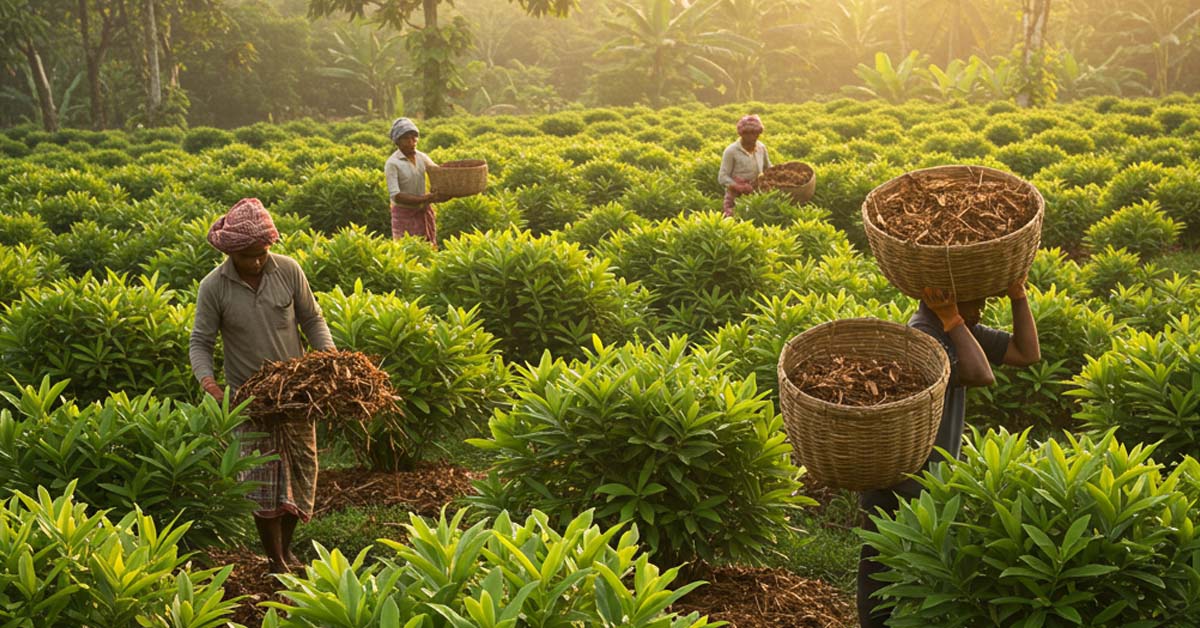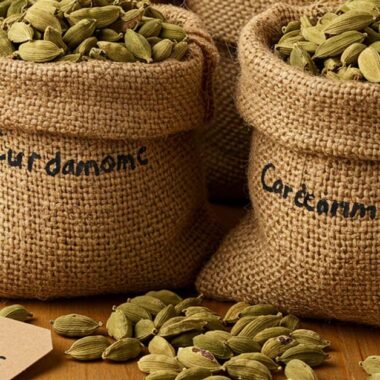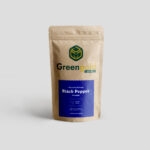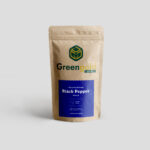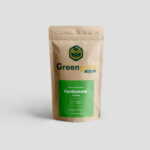Mulching is a traditional agricultural practice that has gained significant attention for its effectiveness in maintaining soil health and conserving water. When applied to cardamom farming, organic mulching provides a range of benefits that help improve crop yield, preserve soil moisture, and reduce the impact of environmental stressors. In this blog, we’ll explore the advantages of using organic mulching in cardamom farming and how it can make a significant difference in the growth and health of your plants. 🌿
🌾 What is Organic Mulching? 🌾
Organic mulching involves covering the soil around plants with a layer of natural materials, such as leaves, straw, grass clippings, compost, wood chips, or pine needles. These materials are biodegradable, which means they eventually break down and add valuable organic matter to the soil. In cardamom farming, this practice helps to create an environment conducive to healthy root development and improves the overall quality of the soil.
🌱 Benefits of Organic Mulching in Cardamom Farming 🌱
1. Water Conservation 💧
In cardamom farming, where water is a critical resource, organic mulching can significantly reduce water loss due to evaporation. Mulch acts as a protective blanket for the soil, reducing the exposure of the soil to direct sunlight and preventing moisture from evaporating.
How it helps:
- Mulch helps maintain consistent soil moisture by keeping the soil cool and hydrated.
- Reduces the frequency of irrigation, helping farmers conserve water resources.
- Keeps cardamom plants well-hydrated during dry spells, which is essential for healthy growth.
2. Soil Temperature Regulation 🌡️
Organic mulch helps regulate soil temperature, keeping it cooler during hot weather and warmer during cold weather. Cardamom plants, which thrive in tropical climates, are particularly sensitive to temperature fluctuations.
How it helps:
- Mulch helps maintain an optimal root temperature, which is critical for the healthy growth of cardamom plants.
- During hot weather, mulch prevents the soil from overheating, reducing the risk of heat stress on the plants.
- In cooler weather, mulch insulates the soil, protecting the roots from frost damage and ensuring stable growth.
3. Improved Soil Fertility 🌾
As organic mulch breaks down over time, it enriches the soil with essential nutrients, creating a fertile environment for cardamom crops. The decomposition process adds organic matter to the soil, improving its structure and overall health.
How it helps:
- The decomposition of organic mulch increases the organic matter content of the soil, making it richer in nutrients.
- Improves the water-holding capacity of the soil, ensuring cardamom plants have access to moisture when needed.
- Promotes the growth of beneficial soil organisms like earthworms, which improve soil aeration and structure.
4. Weed Suppression 🌿
Weeds compete with cardamom plants for essential resources such as water, nutrients, and sunlight. Organic mulching acts as a natural weed barrier, preventing weeds from growing and allowing cardamom plants to thrive without competition.
How it helps:
- Mulch blocks the light required for weed seeds to germinate, significantly reducing the growth of weeds.
- Keeps cardamom plants free from the hassle of weeding, which can be labor-intensive and time-consuming.
- Reduces the need for chemical herbicides, promoting an eco-friendly farming approach.
5. Erosion Control 🌍
Cardamom plants are often grown in hilly or sloping areas where soil erosion can be a problem due to heavy rains or wind. Organic mulching helps stabilize the soil, preventing erosion and keeping the land intact.
How it helps:
- Mulch protects the soil from rainfall impact, which can lead to soil erosion and loss of valuable topsoil.
- In areas with slopes, mulch reduces the speed of water runoff, allowing water to infiltrate the soil rather than wash it away.
- Protects the root zone of cardamom plants, ensuring they remain firmly anchored in the soil.
6. Enhances Soil Aeration 🍃
Cardamom plants need well-aerated soil to develop strong roots. Organic mulching, while preventing moisture loss and weed growth, also allows for proper soil aeration, which is essential for healthy root growth.
How it helps:
- The decomposition of mulch creates spaces in the soil, allowing air to circulate around the roots.
- Encourages the growth of beneficial microorganisms and earthworms, which enhance soil structure and aerate the soil naturally.
- Healthy, well-aerated soil promotes stronger and more resilient cardamom plants.
🌱 How to Apply Organic Mulch in Cardamom Farming 🌱
1. Choose the Right Mulch Material 🍂
Choose organic materials that are readily available and suitable for your local climate. Some options include:
- Grass clippings
- Leaves
- Coconut husks (widely available in tropical regions)
- Wood chips or bark
- Straw or hay
- Compost
2. Apply Mulch Around the Base of the Plants 🏵️
Spread a 2–4 inch layer of mulch around the base of the cardamom plants. Be sure to leave a small gap around the stem of the plant to avoid direct contact with the mulch, which could lead to rot.
3. Monitor and Refresh Mulch Regularly 🌿
Over time, organic mulch breaks down. It’s important to refresh the mulch layer regularly to maintain its effectiveness. If the mulch becomes too compacted or decomposed, add a new layer to maintain moisture retention and soil protection.
4. Ensure Proper Drainage 🌧️
While mulching helps with water conservation, it’s important to ensure that the mulch layer allows for proper drainage. In heavy rains, mulch should not prevent excess water from draining away. Avoid using materials that can form a thick, water-retaining layer that might suffocate the roots.
🌱 Conclusion 🌱
Organic mulching is a highly effective and eco-friendly practice that benefits cardamom farmers in multiple ways. From conserving water and reducing weeds to improving soil fertility and enhancing root development, the benefits of organic mulching are undeniable. By implementing mulching in your cardamom farm, you not only improve your crop yield but also contribute to the sustainability and health of the environment.
At Greengold Guide, we advocate for the use of organic practices to improve cardamom quality and ensure long-term sustainability in farming. 🌍
